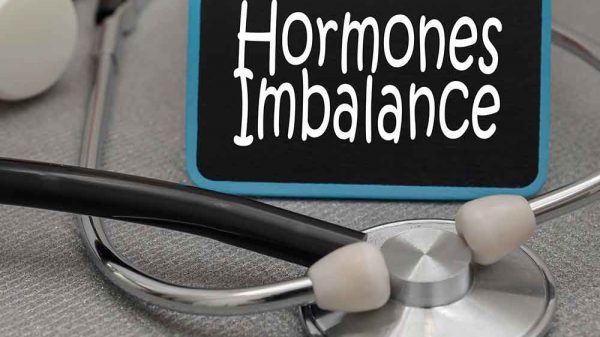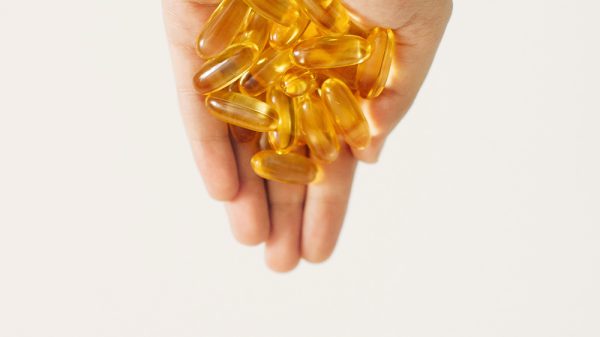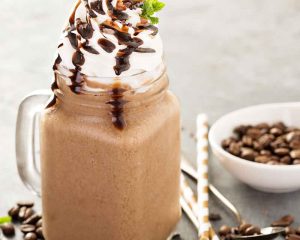Many women who struggle with PCOS also have fatty liver disease. PCOS is a condition that affects women’s endocrine systems, often with repercussions for reproductive health. Here we go through the symptoms of PCOS and why it’s related to fatty liver, as well as how to follow the PCOS diet to improve both hormonal health and fatty liver disease.
What Is PCOS?
Polycystic ovary syndrome, or PCOS, is a condition that affects a significant portion of women. Women with the condition suffer from hormonal imbalances and produce excess androgens like testosterone, the hormone that is characterized as the male hormone. Women normally have small amounts of androgens. At higher levels, however, androgens contribute to PCOS.
Women with PCOS commonly experience the following symptoms:
- Irregular menstrual cycle or loss of menstrual cycle
- Abnormally heavy or painful periods
- Severe, cystic acne that affects the jawline
- Hirsutism, or excess hair growth on face and body
- Growth of cysts on ovaries
- Lack of ovulation
Without intervention, PCOS can lead to infertility.
The Link Between PCOS and NAFLD
PCOS shares many similarities with nonalcoholic fatty liver disease (NAFLD). The PCOS and NAFLD may have a genetic component, though both health conditions are considered to be heavily influenced by lifestyle factors.
Both PCOS and NAFLD often occur in conjunction with metabolic conditions, including:
- Type 2 diabetes
- Insulin resistance
- High blood pressure
- High cholesterol
- Obesity
Inflammation is also a hallmark of both conditions.
Additionally, there is no medical cure for either PCOS or NAFLD. Doctors may prescribe medications that address associated metabolic conditions, such as metformin or statins.
However, both conditions are highly responsive to environmental changes, with the potential for complete reversal. A regimen for NAFLD and PCOS natural treatment relies on diet and lifestyle changes.
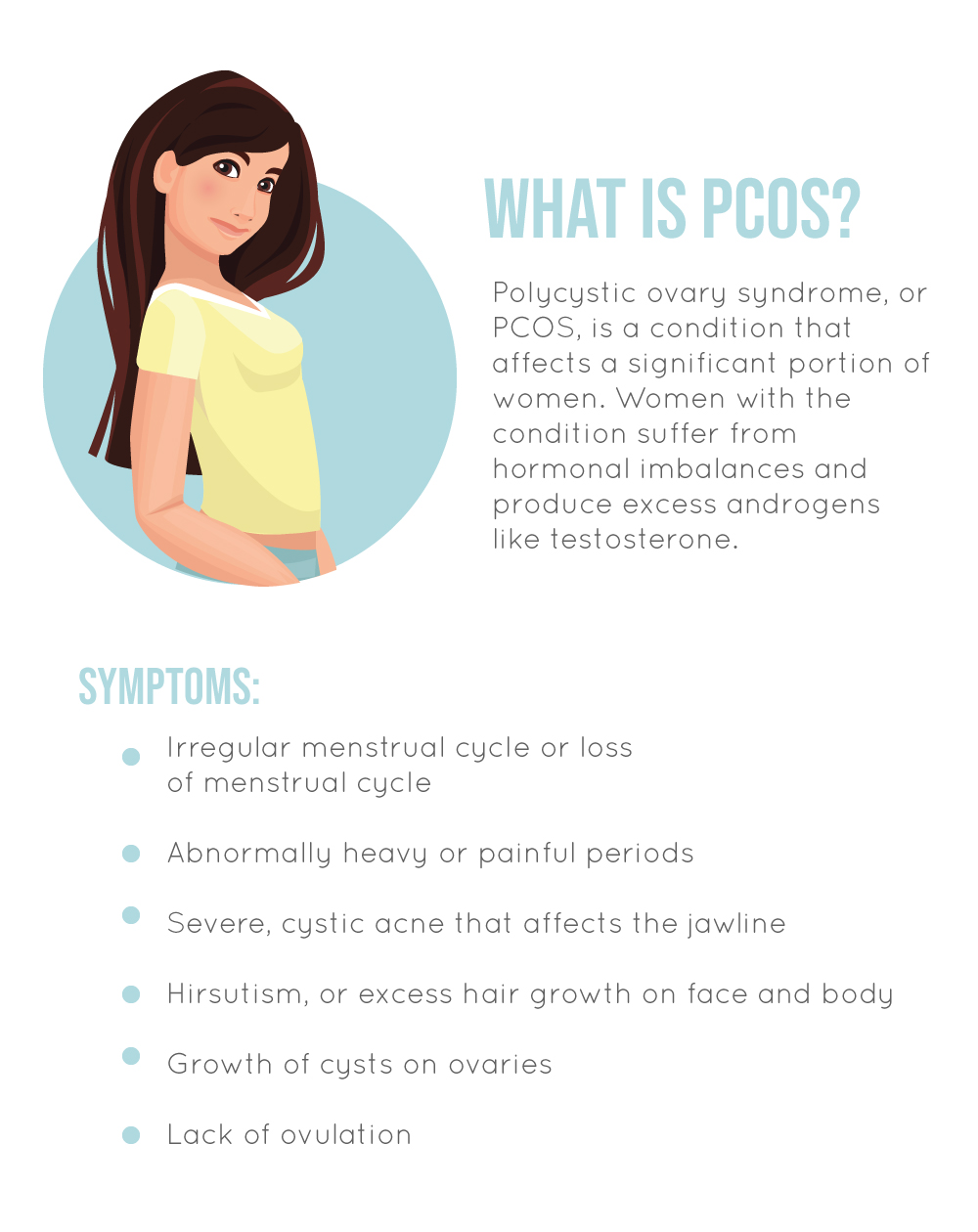
What the Research Shows
The connection between PCOS and NAFLD is well studied in the scientific literature.
Women with PCOS are at a significantly higher risk of having NAFLD in comparison to women without PCOS.
For example, a study carried out by researchers in the United Kingdom revealed startling numbers for the increased risk of NAFLD among women with PCOS. Among women with a healthy BMI, those with PCOS were twice as likely to develop NAFLD than women without PCOS. Among women categorized as overweight, those with PCOS were 7 times more likely to develop PCOS. Finally, among obese women, those with PCOS were 14 times more likely to develop NAFLD. (1)
How to Treat PCOS and NAFLD with Diet and Lifestyle: What Works and What Doesn’t
If you’re suffering from co-occurring PCOS and NAFLD, there are things you can do that can address both conditions simultaneously.
Weight Loss for PCOS and NAFLD
Losing weight, if overweight, is of critical importance when striving to reverse both PCOS and NAFLD. Research reveals the promising impacts of weight loss on improved hormone levels and the reduction of fat in the liver.
Carrying excess fat throughout the body is often a cause of inflammation and hormonal imbalances. Simply losing excess fat and maintaining a healthy weight – independent of diet plan – is important for reversing PCOS and NAFLD.
Exercise for PCOS and NAFLD
Science has established the benefits of exercise for nearly all organ systems, including the endocrine system and liver.
The benefits of exercise are linked to the anti-inflammatory benefits of physical activity. When you exercise, the immune system is positively impacted and works to reduce inflammation and clear damaging compounds from cells.
Exercise plays an important role in helping to maintain a healthy weight. Both cardio and strength training increase the number of calories burned for the day, effectively helping to balance energy input and energy output. On top of that, strength training stimulates muscle growth, and higher muscle mass results in a higher resting metabolism.
Regular exercise also attenuates metabolic conditions associated with PCOS and NAFLD. Aerobic exercise strengthens the cardiovascular system by improving vasodilation in arteries and fortifying muscles in the heart. In turn, this decreases blood pressure and helps lower the risk of heart disease.
Low-Carbohydrate Diet
A diet low in carbohydrates can be an effective way to decrease inflammation in PCOS and NAFLD.
Researchers in Sweden and Finland found that restricting carbohydrate intake among patients with NAFLD led to a decrease in liver fat, lower insulin levels, lower inflammation, and improved liver metabolic function. (2) Though it may be tempting to view the low-carb diet as the diet for NAFLD, this study also didn’t compare results against a control group, making it impossible to determine whether a low-carb diet is more effective than a diet that incorporates whole grain and complex carbs.
Furthermore, recent research published in Clinical Nutrition evaluated numerous studies and concluded that there’s insufficient evidence to suggest that low-carb diets are superior to other diets for reversing fatty liver. (3)
More than likely, a diet that restricts carbohydrates yields dramatic improvement in inflammatory conditions like PCOS and NAFLD due to the elimination of refined carbohydrates and added sugars like white bread, white pasta, cakes, cookies, and other baked goods.
Does the Keto Diet Work for PCOS and NAFLD?
The ketogenic diet, commonly referred to as the “keto” diet, is a more restrictive form of a low-carb diet. The keto diet is characterized by restricting carbohydrate intake while consuming a moderate amount of protein. The bulk of calories on the ketogenic diet comes from fats.
The ketogenic diet is in style right now and has shown promise in reversing PCOS. Though it could in some cases be effective for NAFLD, there are some concerning aspects of the diet that may actually be counterproductive in supporting metabolic health.
The most concerning element of the ketogenic diet is the lack of balance. Some forms of the ketogenic diet even restrict complex carbohydrates found in fruits, veggies, and whole grains. The loophole here is that this opens up the opportunity for a diet subsisting of foods high in saturated fats, including fatty cuts of red meat, bacon, cheese, butter, and other fatty animal products. These foods are linked to high cholesterol, heart disease, and inflammation, which can actually worsen PCOS and NAFLD.
Tailoring Your Diet to PCOS and NAFLD
The polycystic ovarian syndrome diet can be adapted to also work for NAFLD. A diet and lifestyle tailored to reversing PCOS and NAFLD contains several important elements and is designed to lower inflammation and re-balance hormones and metabolic function.
1. No Added Sugar
Added sugar is one of the biggest culprits in exacerbating PCOS, NAFLD, and associated metabolic syndromes. Added sugar is sugar that has been isolated from other sources, like fruit or sugar cane. The isolated sugars are then refined and added to many packaged products, like granola bars and cereals. The sugar from these products increases insulin resistance, imbalances hormones, contributes to weight gain, and increases fat accumulation in the liver. Steer clear of added sugar in processed foods.
2. Lots of Fruits and Veggies
Fruits and veggies are vital for providing fiber, vitamins, minerals, and antioxidants. These nutrients balance gut health and protect your cells as your body works to rebalance hormones and repair.
To incorporate more fruits in your diet, try these options: blueberries, strawberries, raspberries, cherries, oranges, pineapple, papaya, apples, kiwi, red grapes, and pomegranate.
To incorporate more vegetables in your diet, try these options: broccoli, kale, cauliflower, collard greens, spinach, peas, beets, and carrots.
If you’re wondering about the sugar content in fruit, you’ll be relieved to know that natural sugar consumed through whole fruit is processed differently than added sugars. The fiber in fruit slows the release of sugar in the bloodstream, inhibiting blood sugar spikes.
3. Whole Grains
Though eliminating carbs is not necessary for reversing PCOS and NAFLD, the type of carb does matter.
Refined carbs are the enemy for inflammatory conditions like PCOS and NAFLD, because to your metabolism, they are indistinguishable from refined sugar. Similar to processed sugar, refined carbohydrates are produced by stripping away nutrient-dense parts of the grain, resulting in a white, starchy end product. These products include white bread, white pasta, cookies, crackers, chips, and other packaged or baked goods. Just like sugar, the digestive system rapidly converts refined carbs to glucose, which spikes your blood sugar and contributes to weight gain and inflammatory diseases.
In contrast, complex carbohydrates are healthy options that lower inflammation without causing a sugar rush. Complex carbs are present in fruits, vegetables, and whole grains. Whole grains offer loads of fiber and antioxidant properties that help reduce inflammation and promote digestive health. Healthy whole-grain foods include oatmeal, quinoa, brown rice, millet, and buckwheat.
Starchy vegetables can also be an excellent option to provide carbohydrates as well as vitamins and fiber. Starchy vegetable options include sweet potato, butternut squash, pumpkin, and corn.
4. Healthy Fats
It’s a good idea to stay away from saturated fats found in full-fat meat and dairy products, as well as trans fats found in processed foods and fast foods.
However, not all fat is unhealthy. Some types of fat are critical for soothing inflammation and promoting healing. The polyunsaturated and monounsaturated fats found in nuts, vegetables, and fatty fish help to fight liver inflammation, restore hormonal balance, and reverse PCOS and NAFLD.
Healthy sources of polyunsaturated fats include walnuts, pine nuts, pumpkin seeds, flaxseeds, and chia seeds. Omega-3 fatty acids are polyunsaturated fats with potent antioxidant activity and can be found in salmon, tuna, mackerel, and flaxseeds.
Monounsaturated fats can be obtained through peanuts, almonds, pecans, avocados, and olive oil.
5. High-Quality Protein
High-quality protein is vital for providing all essential amino acids that the body needs to carry out all cellular functions, including repairing oxidative damage and fortifying immune function.
Maintaining ideal ratios of essential amino acids in the body is critical to supporting disease reversal and healing. A study conducted at the Amrita Institute of Medical Sciences & Research Centre in Kochi, India, assessed levels of amino acids among women with PCOS. Results revealed significant imbalances, including low levels of isoleucine, valine, phenylalanine, tyrosine, lysine, histidine, and methionine, and high levels of alanine. Having optimal ratios of essential amino acids may be helpful in lowering inflammation and promoting healthy functioning of the endocrine system, though research has yet to prove this. (4)
The single highest quality protein sources are those that contain ideal ratios of essential amino acids. These foods include meat and dairy products like beef, chicken, fish, milk, and cheese. When eating these products, just be sure to choose low-fat and low-sodium options to maximize health benefits. Soy protein like tempeh or tofu is a great plant-based option for getting all essential amino acids. Though other plant protein sources like beans and nuts contain essential amino acids, several sources must be consumed throughout the day to reach an adequate supply of essential amino acids.
6. Antioxidant Additions
Adding antioxidant spices and herbs to your diet may encourage anti-inflammatory activity to promote healing from PCOS and NAFLD. Green tea contains polyphenols that work to reduce systemic inflammation. Turmeric exhibits anti-inflammatory properties that attenuate liver inflammation.
Medical Markers for Reversing PCOS and NAFLD
Within a week of following a diet for PCOS and NAFLD, you will likely notice weight loss. After that, markers of metabolic syndrome will most likely begin to improve, including improved insulin levels and better blood pressure readings.
Reversal of PCOS will exhibit as the return of ovulation, menstrual periods, and fertility, as well as normalized levels of androgens.
Reversal of NAFLD will show up as normalized liver enzymes, decrease in liver inflammation and liver size, and loss of liver fat.
For both PCOS and NAFLD, make sure to regularly check in with your doctor to monitor your progress and to make sure you’re doing everything you can to reverse the conditions.
Conclusion
PCOS and NAFLD are related conditions that respond readily to diet and lifestyle changes. The bottom line is if you have PCOS and NAFLD, a balanced anti-inflammatory diet, weight loss, and exercise are the curative elements for reversing both conditions.
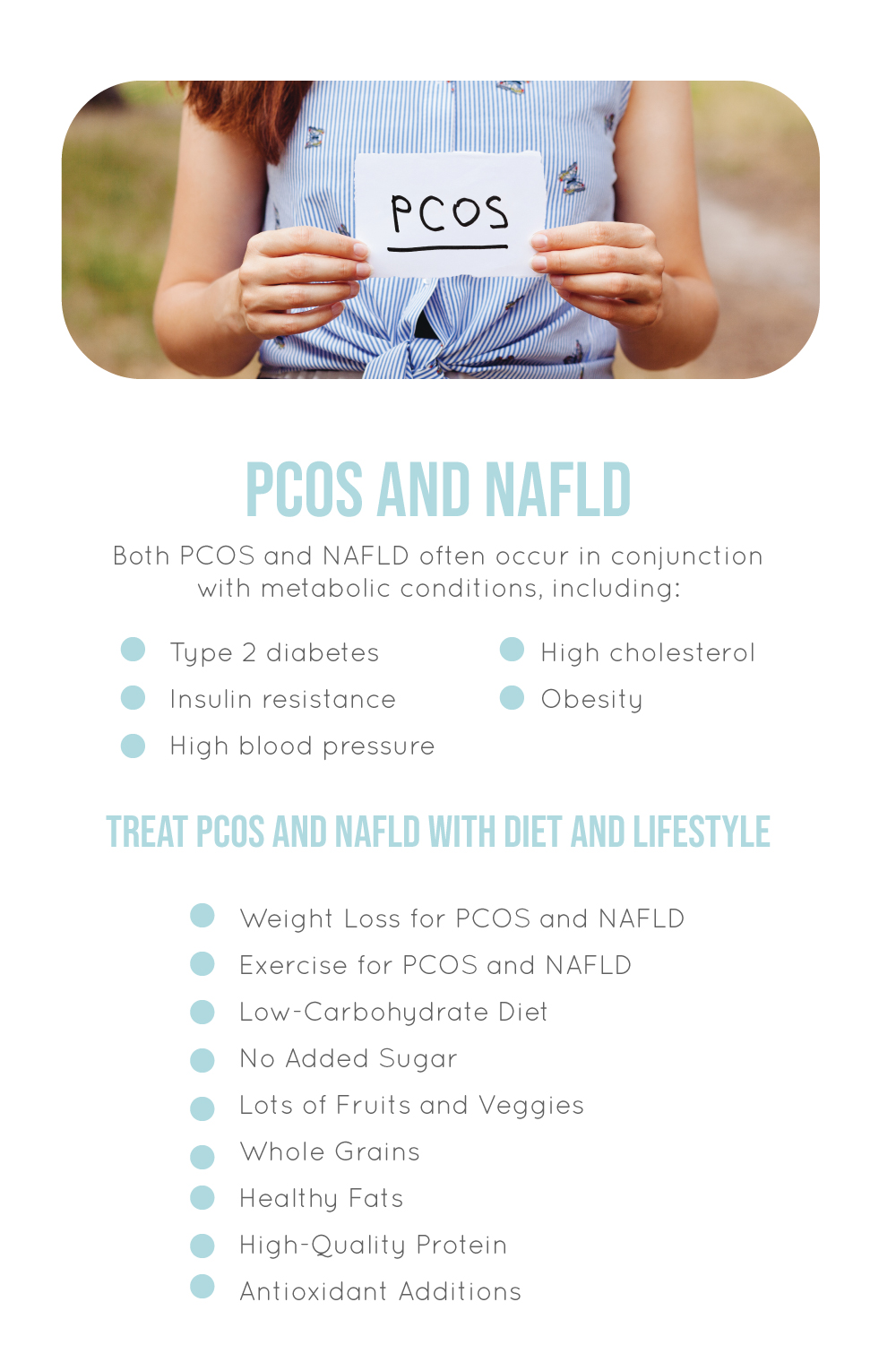
References:
(1) https://journals.plos.org/plosmedicine/article?id=10.1371/journal.pmed.1002542
(2) https://www.ncbi.nlm.nih.gov/pubmed/29456073
(3) https://www.clinicalnutritionjournal.com/article/S0261-5614(18)32460-9/abstract



